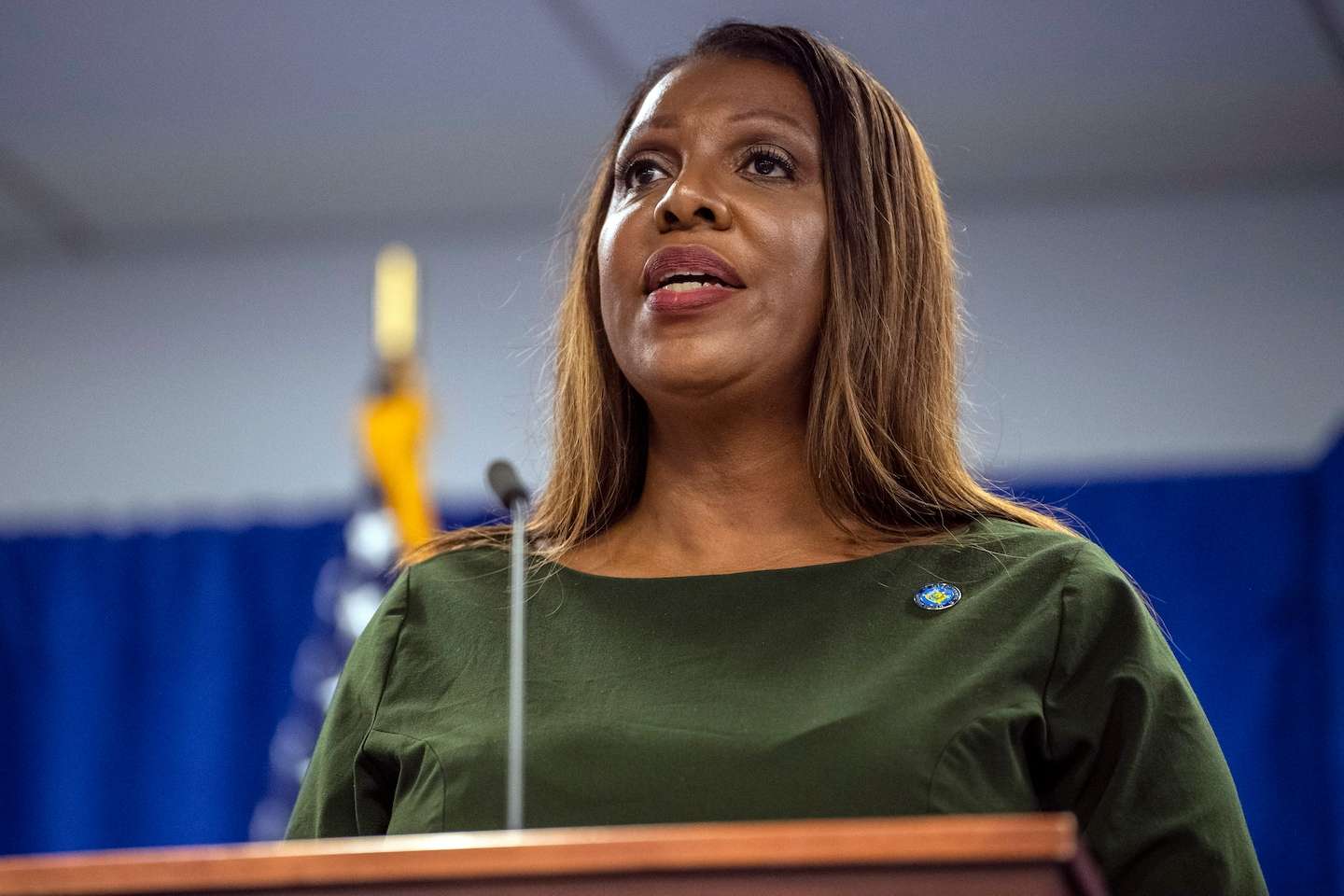The New York attorney general on Tuesday called on the state legislature to pass new laws to deter the live-streaming of homicides, following an investigation that concluded the alleged gunman accused of killing 10 people in Buffalo was radicalized online and then used social media to plan and promote his rampage.
Buffalo massacre report seeks to punish broadcasters of homicide live streams

Attorney General Letitia James’s probe marks one of the most significant efforts by U.S. law enforcement to examine the role of the internet in a mass shooting after attacks in Uvalde, Tex., El Paso and Christchurch, New Zealand, drew public attention to the role of tech platforms in massacres. However, many of the recommendations made in a report on her office’s findings are likely to face challenges under the First Amendment, which gives Americans’ broad protections over how they express themselves online.
The 47-page report — based on thousands of documents subpoenaed from major tech companies and fringe social networks — concludes that the alleged shooter was “galvanized by his belief that others would be watching him commit violence in real time.” James (D) recommends that New York lawmakers criminalize the act of a perpetrator live-streaming a homicide, as well as impose civil penalties, such as fines, on people who share the shooter’s videos or images.
The alleged gunman broadcast his May attack on a grocery store in a predominantly Black neighborhood via the streaming service Twitch, and though the company removed the stream within a few minutes, copies of it rapidly spread online. The suspect has pleaded not guilty, facing charges of domestic terrorism and murder as a hate crime.
The report recommends tech companies adopt live-streaming restrictions, including identity-verification requirements and streaming delays that could allow the platforms to restrict who broadcasts video or catch violent footage before it goes online. The report also calls for Congress to revise Section 230, the provision of law that shields tech companies from lawsuits over dangerous or hateful content that is shared on their services.
James said she met with the families of the Buffalo victims to share the report’s findings and said that urgent action is needed to hold online platforms accountable for allowing dangerous videos and posts to spread.
“The tragic shooting in Buffalo exposed the real dangers of unmoderated online platforms that have become breeding grounds for white supremacy,” she said in a news release. “We cannot wait for another tragedy before we take action.”
The report warns that the Buffalo suspect’s online writings and videos double as “an inspirational guide and instructional manual for the next mass shooter.” He kept a diary on the chat service Discord, where he detailed how he purchased equipment and allegedly configured the broadcast of the shooting.
The recommendations could face legal resistance in suggesting that anyone who transmits or distributes shooting images or videos could face “civil liability.” As written, the rule could penalize online users for sharing links to publicly visible videos or reposting them, drawing concerns over First Amendment overreach. The report did not establish a clear framework for how such penalties or enforcement could work, including how officials would identify anonymous users or define improper use. After past shootings, some users online have defended sharing the videos by saying they wanted to expose the dangers of racist or otherwise extreme rhetoric or force people to reckon with reality.
The report calls for “significant penalties sufficient to realize the goal of deterrence” against people who share the content “in concert with the perpetrator of a homicide” but does not detail how that group would be defined.
After the Christchurch shootings, during which 51 people were killed, people on the fringe message board then called 8chan raced to save and re-upload the killer’s first-person video, including sharing strategies for which video-hosting sites would help keep it online.
James’s recommendations warn that any restrictions on live-streaming “should be drafted in a manner that ensures conformity with the First Amendment.” The report says that there is “no societal benefit” to perpetrators sharing live streams of homicides, and that any law should aim to avoid levying penalties for videos that have “educational, historical or societal benefits.” The report argues that there are already more stringent laws that have survived First Amendment scrutiny that apply to disseminating child sex abuse material.
Policymakers around the world are increasingly trying to understand the link between social networks and extremism. Last month, the White House hosted a gathering on hate-fueled violence, where American tech giants announced a series of steps to limit the spread of hateful rhetoric. And the Biden administration last year signed onto the Christchurch Call, a global pledge by governments around the world and tech companies to address violent extremist content.
Yet some advocates for gun control have warned that the focus on social media in mass shootings is misplaced, as social media is available globally and the United States has uniquely high rates of gun violence compared with other countries. The report also highlights the need for stronger gun laws, but its focus is specifically on how the Buffalo suspect saw prior mass shootings, allegedly planned his own and disseminated his manifesto and broadcast.






